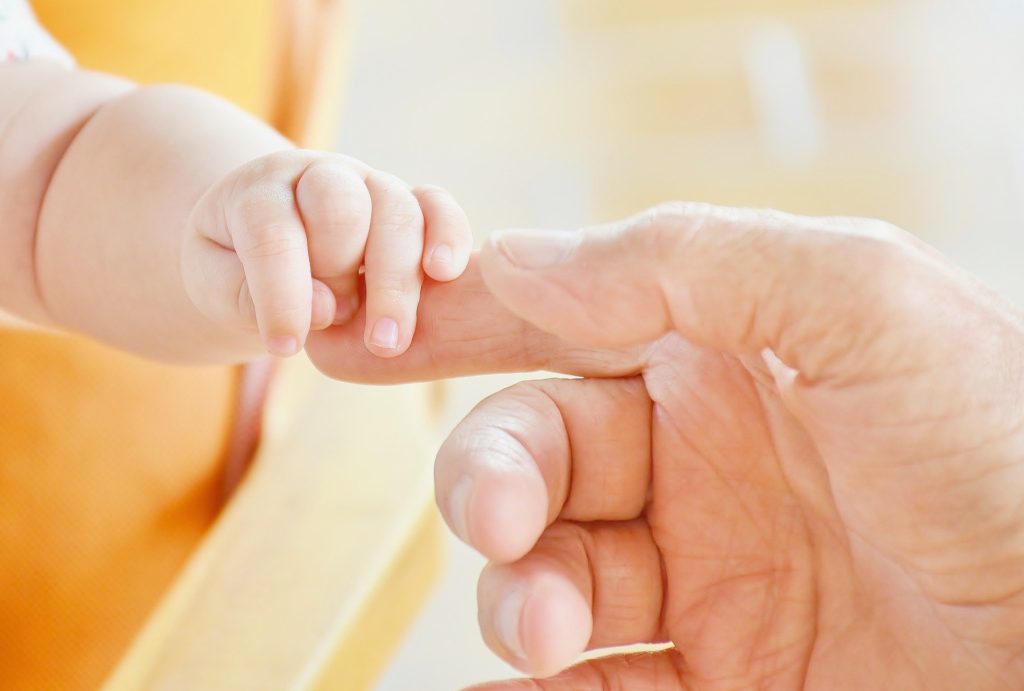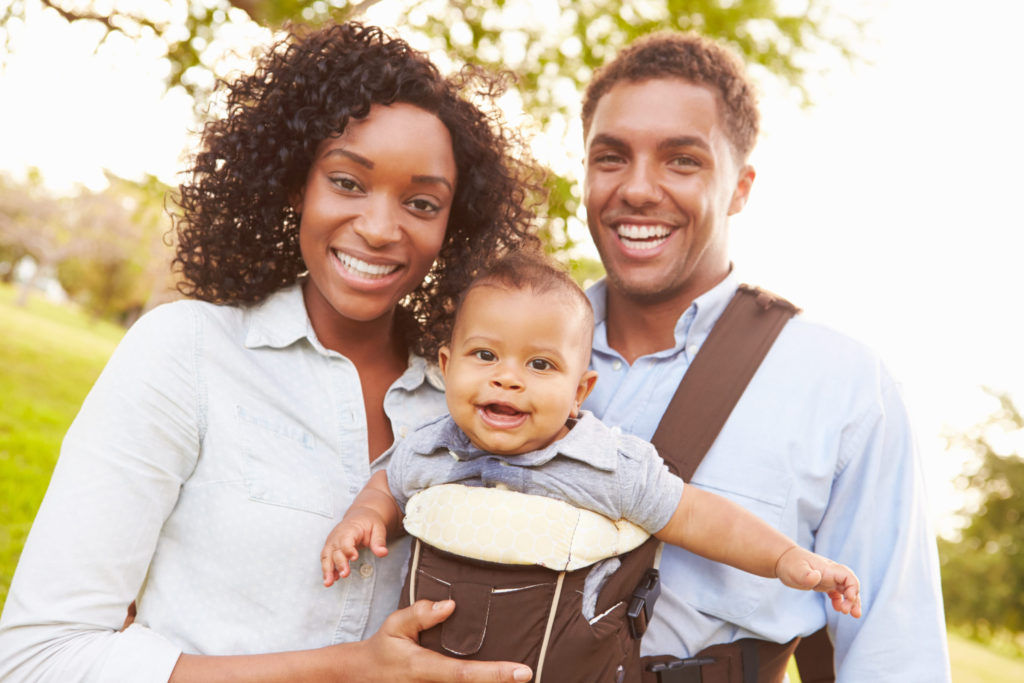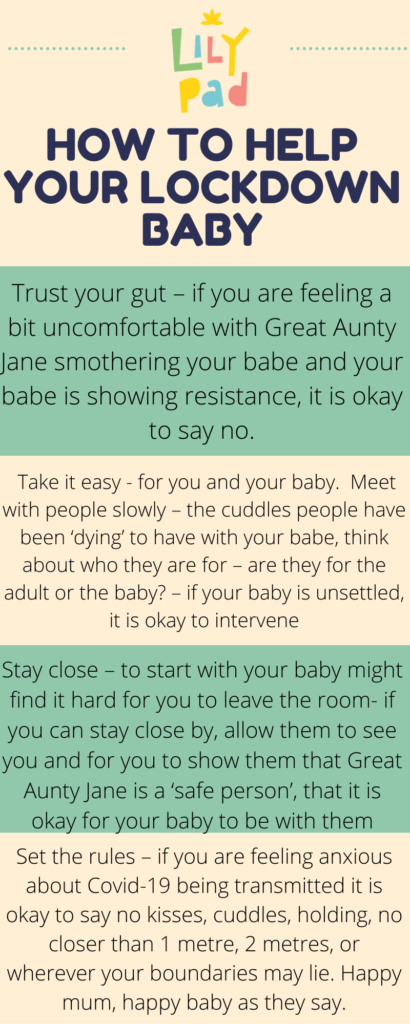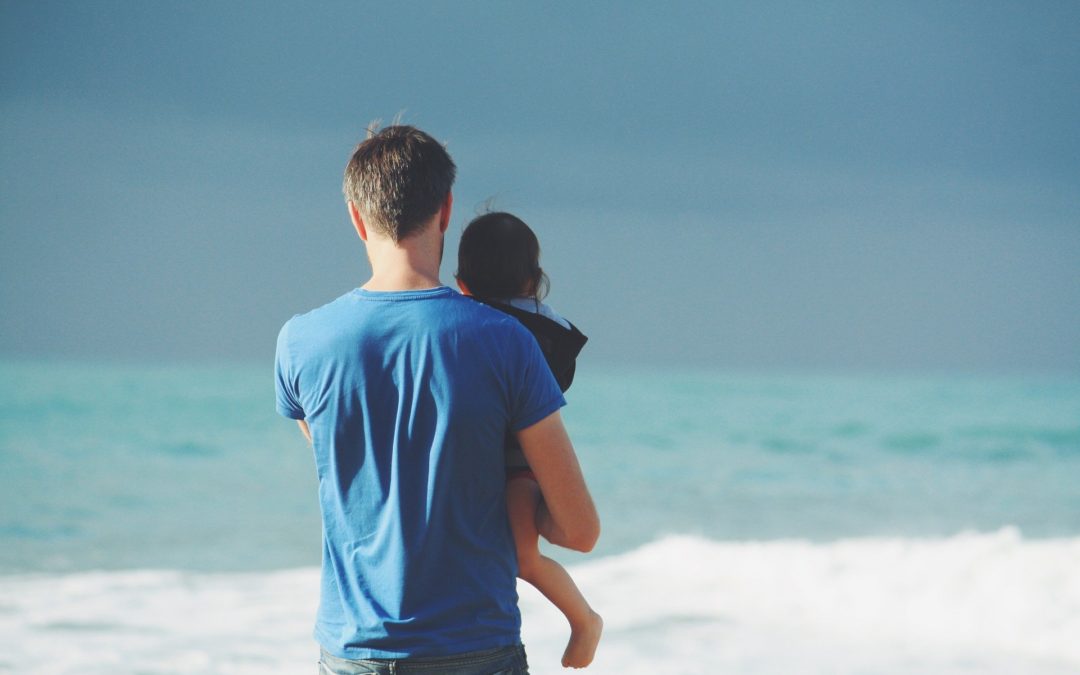Whether you had a baby during lockdown, or gave birth during the last year or so, you might be wondering how lockdown will have affected your baby and if there will be any lasting impact of the strange experiences of 2020 so far.
Social isolation is a new phrase we are all so familiar with now. This will have brought with it new challenges for parents of young babies. So how will Lockdown have affected your baby? The lack of socialisation may cause difficulties such as an increased awareness of strangers, fear of others and a lack of awareness of the world around them; but the good news is that babies are likely to ‘bounce back’ quickly and any impact is likely to be short lived.
Here we explore some of the reasons behind these difficulties, as well as the positives Lockdown babies will have experienced and what you can do to support their socialisation.
The impact of a lack of socialisation
It is likely that your baby will have been at home with only you, perhaps a partner or a grandparent or siblings too. This is going to have given them interaction and socialisation to a certain degree; but it is not the same a ‘normal-times’. Being at home with them all the time, will have meant that your baby is likely to have spent time playing in the home environment in a way they may not have done before. There are going to have been greater opportunities to explore the environment in the home setting, it is likely to have meant less time in a pushchair or car seat and more physically free time. This will have been really beneficial for their physical development.
On the flip side, there has probably been less time socialising with others. Other babies, children and adults. This is likely to mean that as your baby starts to ‘go out’ more they may be more wary of those around them. They may not recognise the faces they have seen on the screens of Facetime and Zoom, they may not know what to do when someone else talks to them and it is likely that, initially, they will feel unsure about being left by you. All of this is a normal reaction to a very unusual set of circumstances; and with your support, they will settle.

Let’s go back to the beginning
Attachment is a fundamental part of relationship forming for us all. From birth we very quickly start to develop patterns of relating to others. This is changeable in the early years and as we get older the patterns are more ingrained; still changeable, but more fixed.
Attachment is developed in our early years through our learning about our needs being met; physical and emotional. For example, are we consistently fed and watered? When we need comfort are we comforted? When our caregiver doesn’t meet our needs do they then make attempts to ‘get it right’?
Do not panic! We do not need to ‘get it right’ all of the time, but the more often we do – ie. Understand that the cry is because our baby is hungry or needs a nappy change, the more ‘secure’ our attachment pattern becomes. Caregivers can get it ‘wrong’ ie. misread the cries for a dirty nappy when it is in fact hunger, and children will still have positive attachment patterns.
What has this got to do with lockdown babies?
The most important thing for attachment is you! Through being at home all the time, you are likely to have been able to meet your babies needs more often, more quickly, even if you have other children at home. It might have felt at times like you were at the end of your capacity to respond to your baby’s needs but through having less distractions you may have been able to be more responsive to your baby than you otherwise might have been.
If you have experienced an impact on your mood as a result of lockdown, this may have made it harder to meet you baby’s needs, but on the most part parents will have had more capacity to meet your child’s needs.
You may have found yourself ‘babywearing’ (using a carrier/sling) more than you did before or might have done without being in the middle of a pandemic. Research shows that babywearing increases maternal responsiveness and in turn increases the likelihood of a secure attachment pattern for the baby.

Attachment and Separation Anxiety
From around 9 months of age, separation anxiety starts to show in most infants. This is where the child shows upset at their caregiver leaving them. This can be as simple as the caregiver going to the bathroom, or kitchen, not necessarily leaving them for a long time.
For lockdown babies, their time spent with you is likely to have been extreme. That trip you had planned for dinner with the girls or to have your hair done didn’t happen. This is going to mean that separating from you might be even more difficult than it might have been otherwise. Positively, the increased time your baby will have spent with their other parent and siblings, is likely to mean that they will have a bond with them and their attachment to their other caregiver is likely to be more positive than it might have been with snippets of weekday contact.
What can you do to help your baby?
The thing about lockdown is that it has forced us to spent time together. Most knew parents will feel that they have got to know their babies during this time and equally, they have got to know you. They have got to know you as their safe base, their security.
You, their other parent and their siblings (or people they have been living with) are the only people they know to be safe. Your baby’s resistance to others is not personal to Great Aunty Jane. It is attachment. It is survival.
Believe it or not, simple games of peek-a-boo will be a good place to start to help your baby with some of the anxiety they may have with you leaving them. Peek-a-boo teaches babies that their caregiver can go away but will come back. It feels ‘safe’ and playful for them. You might start with doing this with your hands over your face for younger babies and develop it into popping up and down behind the table or a chair.
When you start socialising more these pointers might help;

- Trust your gut – if you are feeling a bit uncomfortable with Great Aunty Jane smothering your babe and your babe is showing resistance, it is okay to say no.
- Take it easy – for you and your baby. Meet with people slowly – the cuddles people have been ‘dying’ to have with your babe, think about who they are for – are they for the adult or the baby – if your baby is unsettled, it is okay to intervene
- Stay close – to start with your baby might find it hard for you to leave the room- if you can stay close by, allow them to see you and for you to show them that Great Aunty Jane is a ‘safe person’, that it is okay for your baby to be with them
- Set the rules – if you are feeling anxious about Covid-19 being transmitted it is okay to say no kisses, cuddles, holding, no closer than 1 metre, 2 metres, or wherever your boundaries may lie. Happy mum, happy baby as they say.
Despite not seeing others in the same social way that they may have done before Lockdown, your baby’s brain is developing at a rapid pace. New neural connections are being created all the time. This means that your baby will ‘bounce back’. New patterns of interacting and seeing the world can easily be developed. And remember, you are the most important part in your child’s development of feelings of safety and security.


Recent Comments